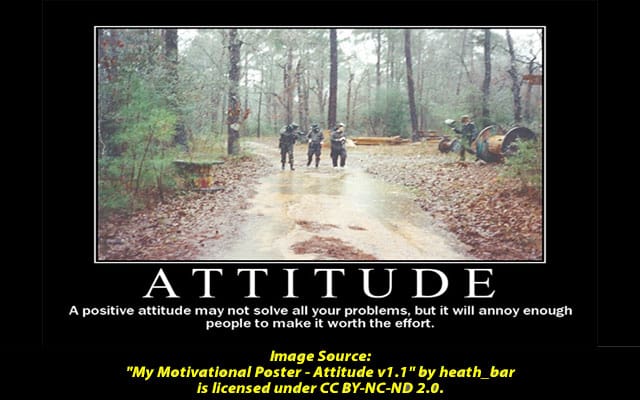When RGH Siu, the engineer turned humanitarian, father of Panetics, the study of human suffering, brought out a mimeographed version of his theory on virtual presence sometime in the early nineties of the last century, he defined it as a presence in the humans which is neither a skill, nor a competence, nor an ability. It is not even an area of resourcefulness. He wrote about it in many of his books, whenever there was a need to refer to it, and in his book on Cheerfulness, he sent it to me with a personal note and I considered the book, which is not sold in the market, a wonderful gift.
It was accidental, at the turn of this century, in Mysore, that this concept of virtual presence in all humans was mentioned in a conference of professors where a couple of participants wanted a little more information about it and during the lunch recess they brought it up. Their interest, authentic indeed as anybody could judge, desired a greater discussion and so a workshop was organised on the theme for a couple of hours when a particular speaker did not turn up and the time had to be engaged. Among several clades of virtual presence, attitude as a virtual presence attracted the attention of many of the participants. What follows in this article are several thoughts that were presented by different participants.
It was Bertrand Russell in an article, in the mid twentieth century, who said that human effectiveness is decided by the attitude that a person had towards everything, including himself, in the world. People have their attitudes developed right from childhood and it is not anything static. It keeps changing depending on various reasons. The fact that a large portion of human attitude is the result of situational determinants and their impact on the personality of every individual definitely makes it an interesting area of study from the perspectives of both effectiveness and success of humans as independent personalities.
Attitude as a virtual presence decides the quality of performance of people because it imprints its impact on various areas of human resource like traits, values, interests, imagination, will and cognition, the last being the most decisive. One’s attitude towards everything in the world and to oneself produces the best of the results that an individual could achieve. Apart from one’s own performance at one’s own initiative, the quality and texture of one’s response to others, especially their behaviour, and more especially to what happens around, human attitude is responsible for creation of the type of life that one decides to live. Much more than all these, one’s attitude is responsible for one’s relevance of existence in any given society.
There is a need to consider the importance of five attitudes that all humans should possess for effectiveness and consequential or associated success. They are attitudes of ideology, rationality, concern, enquiry and contentment. Each of them helps in the consolidation of the personal living of an individual in the core of one’s life and continued living. It is definitely interesting to examine each of these attitudes.
An examination of the progress of the world essentially brings up the truth of the impact of ideological growth of the humans. It took considerable amount of time for the humans to recognise their own cognitive resource and its impact on each human. Though the cognitive revolution did bring up the importance of cognition, it was only after the beginning of agricultural revolution, may be ten to twelve thousand years ago, humans started placing necessary importance on cognition. Cognitive processes and their response to nature’s ways brought up different ideologies. Through a gradual process of evolution, different ideologies started uniting people and in accordance with their selection or preference they came together under one of them. This resulted in believing the need for an attitude of ideology as the base for human outlook. Ideological differences were also responsible for the making of different groups and later different societies. Some of these ideologies gave people their attitude towards others, including the non-living. In some cases, not having an ideology itself became an ideology and its production as an attitude. An ideological attitude extends human understanding of each other beyond physical needs. However, it needs to be remembered that ideological attitudes can be various and varied and can result in disasters of opposing ideologies colliding with each other.
If an attitude of ideology is the base for human’s existence in the midst of plants and animals as a different species, it also has to be stated that this attitude of ideology has to be coupled with an attitude of rationality. All rational ways of looking at life need not be logical. Therefore, an attitude of rationality need not always guarantee logicality. However, an attitude of rationality converts many belief systems into acceptable ways for living as it also demanded satisfactory explanations. The most powerful rational belief system will demand of everyone and everything to be reflecting rational thinking and consequential discoveries of newer belief systems based on that rationality itself. So, an attitude of rationality is a direct product of human cognition and its associated thoughtfulness.
Yet another attitude is one of concern. Definitely it is a product of two major areas of human resource, principles and conscience. These two factors contribute to the effectiveness of humans as the use of other areas of human resource will depend on the effective functioning of the combination of both. Human conscience is responsible for the application of checks and balances for all human actions and such conscience is created by the belief systems that a human holds and many of these are established as principles of life for an individual. The possible definition of a good human being states that one such is the product of principle-centred living with concern for others with a particular reference to the living ones. It is the attitude of concern that makes the humans regret one’s own lack of concern for other beings and other things in the world. It is the attitude of lack of concern that leads people towards not only death and destruction but also possible total extinction of the world. So, it is naturally possible, cognition assures that, all humans are developed with an attitude of concern unless such concerns are neutralised through attitudes of lack of idealism and application of rationality.
If attitudes of ideology, rationality and concern have to progress and take different positions, shapes and contents in the personality of any individual, there is a need for an addition of an attitude of enquiry. Inquisitiveness is the trademark of all humans endowed with cognitive resource and it is bound to fructify in an attitude of enquiry. Here, one has to differentiate between curiosity and inquisitiveness, the latter is more productive and cognition-centric. Inquisitiveness becomes an attitude of enquiry only when it goes beyond human emotions and becomes a desired nature of an individual who will not be satisfied to continue to live unless the enquiry brings up discoveries. So, and undoubtedly, an attitude of enquiry is responsible for human progress and this attitude is responsible for the totality of discoveries that made humans become what they are today.
An attitude of contentment is dependent on specific definitions of needs of each human. Such definitions create an attitude in the human that goes beyond ideology, rationality, concern and enquiry. All four through multiples of engagement and consequential results reach the humans into an attitude of contentment. Happiness or pleasure in themselves are not enough to create an attitude of contentment. In fact, both may be products of an attitude of contentment. Contentment should result in peace which should result in creativity which in turn should result in happiness and pleasure as reflections of contentment. There is no doubt contentment is the base for civilised living and creation of civilisations.
Attitudes make the human potential which in itself exists and makes its presence felt through different attitudes. Potentiality becomes the mother of possibilities and is always expressed by ideology, rationality, concern, enquiry and contentment. Human life, both those of individuals and the collective, progresses itself not just because of the improvement of the resourcefulness and their guarantee of effectiveness, but because of the attitudes that both individuals and the collective practice in everyday living resulting in complimenting each other’s expressions of different ways of living. Life and living are guaranteed their desired effect because of the attitudes that humans carry with them, both as individuals and as collectives. The fact that an attitude is developable assures the humans possibilities of better and more enjoyable times of collective living.
A study by: Sunney Tharappan, College for Leadership and Human Resource Development.
Read more:
Attitude Is Everything: Change Your Attitude Change Your Life
Our attitude towards a problem is the real problem, says Shilpa Shetty
Gratitude is my new attitude, says Simbu



















